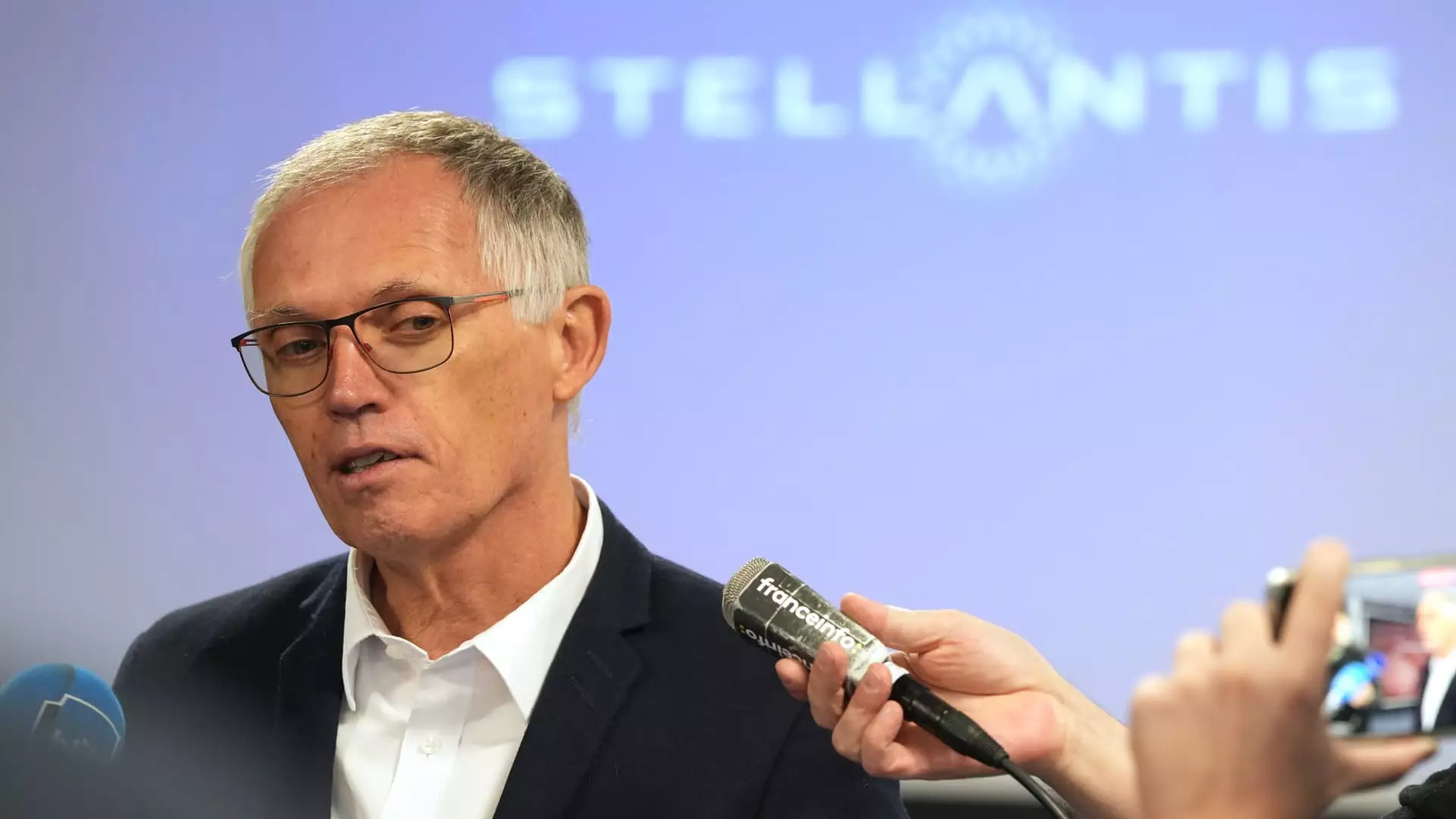The automotive industry is witnessing seismic shifts, as highlighted by the recent resignation of Carlos Tavares from his role as CEO of Stellantis. This significant announcement came when perspectives between Tavares and the board of directors began to diverge, culminating in a decision that has profound implications for the company and the broader automotive sector. Tavares’ exit, accepted by the board as of Sunday, not only marks the end of an era but also raises questions about the future trajectory of Stellantis, the world’s fourth-largest carmaker.
Tavares, a seasoned automotive executive and former board chair at PSA Group, was pivotal in the formation of Stellantis after the merger of Fiat Chrysler Automobiles and PSA Group in 2021. He was lauded for his ability to navigate the complexities of combining two significant automotive entities, fostering profitability and strategic alignment in an industry often fraught with volatility. However, the past year has been less kind, with the company’s financial performance falling below market expectations, particularly in the U.S. market—a core revenue source for Stellantis.
The financial downturn, reported as a 27% drop in third-quarter net revenues, highlights missteps in strategy and management that have been exacerbated by rampant cost-cutting measures and an absence of investment in new product lines. In September, Stellantis even lowered its annual guidance as it struggled with a significant decline in vehicle sales. Such operational inefficiencies, especially in a highly competitive market, have undoubtedly led to a fractious relationship between Tavares and the board, sparking discussions about leadership’s vision and execution.
Under Tavares’ leadership, the company engaged in aggressive cost-saving initiatives, reportedly reducing expenses by 8.4 billion euros. While controlling costs is a necessary strategy in the automotive industry’s present landscape, criticism has surfaced regarding the severity of these cuts. Former executives have described Stellantis’s approach as excessively harsh, potentially crippling its operational capabilities and morale.
The ramifications of these cuts were evident as Stellantis grappled with diminished production and an unhappy workforce. With a reduction in headcount by about 15.5%, the impact of layoffs has resonated throughout the U.S.-based workforce, leading to unrest among unions like the United Auto Workers (UAW). This labor discontent signifies a broader problem: while cost-cutting may provide short-term financial respite, it can severely undermine productivity and investor confidence in the long run.
As the shock of Tavares’ abrupt departure settles, Stellantis’ board has expressed the need for a leader who aligns closely with its strategic vision. Chairman John Elkann has assumed an interim role, promising a prompt search for Tavares’ successor. This commitment is critical for restoring stability and confidence among stakeholders who have witnessed a noteworthy decline in Stellantis’ stock—down approximately 43% in 2024 alone.
The company’s move to establish a new executive committee signals a recognition of the urgency required in addressing the leadership vacuum and steering Stellantis back on course amidst financial challenges. There’s anticipation surrounding who will fill the CEO role, particularly as Stellantis aims to rebalance its market strategy, align operational practices, and rejuvenate its product offerings in a rapidly evolving automotive landscape.
The unexpected resignation of Carlos Tavares shines a light on significant underlying issues within Stellantis, encapsulating a decisive moment in the company’s history. As the search for a new CEO commences, Stellantis faces the daunting task of addressing internal divisions, reigniting investor confidence, and developing a clear path towards recovery.
In navigating these turbulent waters, the new leadership must focus not merely on financial austerity but also on fostering innovation and engagement across the workforce. Failure to reconcile these aspects could foreseeably lead to further declines, not just in profits, but also in the company’s reputation and market share. The ramifications of Tavares’ resignation will reverberate throughout the industry, serving as both a cautionary tale and a potential catalyst for transformative change across the automotive sector.

